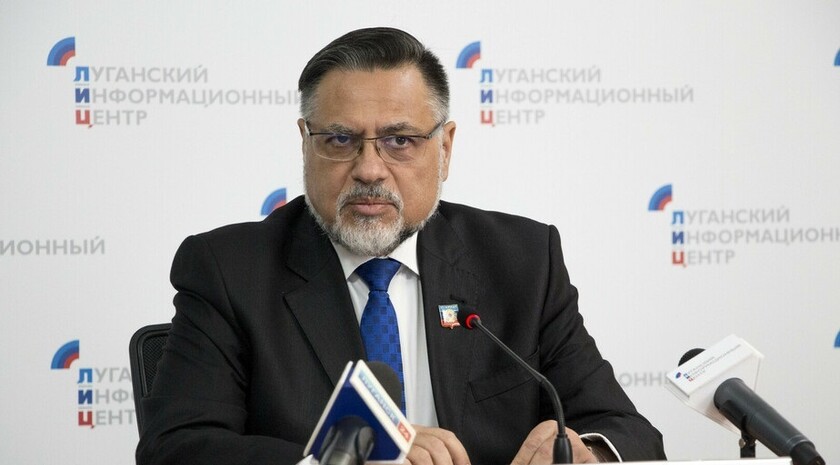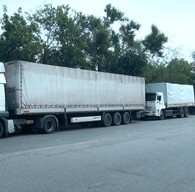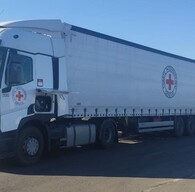The Office of incumbent OSCE chairman Zbigniew Rau has declined the invitation to visit the Lugansk and Donetsk People’s Republics in the course of Rau’s upcoming trip to Ukraine, LPR representative at the Minsk talks, the Republic’s Foreign Minister Vladislav Deinego said.
“At the end of the Contact Group video conference session on February 9, the LPR and DPR representatives asked the coordinator if incumbent OSCE Zbigniew Rau had accepted our invitation to visit the Republics in the course of his upcoming visit to Ukraine,” Deinego said. “Mr (Contact Group coordinator for the OSCE Mikko) Kinnunen said that the OSCE chairman Office has given a negative answer due to a lack of time.”
“Perhaps, it is important for the OSCE leadership to only take into account Kiev’s position as the comprehensive and objective assessment of the situation in Donbass does not fit into “European security” concept,” he said.
POLITICAL ISSUES
The LPR foreign minister said that “at the Contact Group meeting, Ukraine never hinted at its readiness to make concrete decisions to settle the Donbass conflict.”
“During the discussion of political issues, LPR and DPR representatives asked the same questions more than ten times: “Will Ukraine present its recommendations, comments or other response in any form it deems acceptable on the Road Map draft submitted by the Republics in October 2020.” Instead of giving a direct reply to this simple and clear question, the Ukrainian representative indulged in vague speculations about the formats of response and freedom of their choice, clearly diverting the discussion from concrete details to casuistry,” Deinego said.
“The issue of the submission of Ukraine’s updated Plan of Steps (Road Map) was also left without any coherent answer,” he added.
The Ukrainian representative in the Contact Group re-confirmed that the work on updating the project was ongoing,that it would be completed soon and that the project would be submitted shortly, possibly before the next session, however, he obviously underlined that he had doubts on that account,” the LPR diplomat said.
SECURITY ISSUES
The work on security issues was also unproductive.
“Instead of discussing the updated coordination mechanism, finalizing and launching it to decrease tensions on the contact line, the participants of the talks, at an odd whim of subgroup coordinator (for the OSCE) Mr (Yasat Halit) Cevik spent a lion’s share of the time on discussing certain aspects of operation of the SMM (OSCE Special Monitoring Mission) in the Republics’ territories. Even our direct remarks that the issues of OSCE SMM operation are outside the Contact Group competence and have to be a subject of bilateral talks between the SMM and representatives of the areas which raise questions from the SMM, were unable to redirect the discussion to the agenda,” the LPR foreign minister said.
“As a result, the full-fledged launch of the updated coordination mechanism, whose absence enables Ukrainian armed formations to ignore with impunity the Measures to Strengthen the Ceasefire of July 22, 2020, was not discussed,” he said.
As clear proof of the urgency to ensure strict compliance with the above measures, the LPR showed a Ukrainian drone Leleka-100 equipped with a video camera and transmitting device which provide for real-time artillery fire adjustment. It was intercepted and landed southwest of Pervomaisk near the Zolotoye security zone on Wednesday. However, even this evidence of Ukraine’s violating Item “a” of the Measures (to Strengthen the Ceasefire) failed to make the discussion refocus on the coordination mechanism. The Ukrainian representatives preferred to keep silence regarding the fact of use of the fire-adjustment drone,” Deinego said.
HUMANITARIAN ISSUES
The Republic’s representative at the Minsk talks said that “on the humanitarian track, Ukraine continued to refuse to drop criminal prosecution against the persons released during the December 2019 and April 2020 prisoner exchanges, ignoring the signature of the head of their delegation under the written commitments.”
“As for the opening of new crossing points, Ukraine continues to manipulate technical aspects of their operation and security. But the stumbling block this time was the coordination of uniform approach to the measures to counter the spread of COVID-19. Ukraine is stubbornly promoting the idea to refuse the symmetrically coordinated measures which the parties’ infectious disease experts have to work out together, and suggests using rapid 15-minutes tests by dubious “laboratories,” Deinego said.
He added that “the report of the coordinator of the subgroup on economic and rebuilding issues was approved without discussion.”
MILITARY OPERATION
The Ukrainian government launched the so-called anti-terrorist operation against Donbass in April 2014. Conflict settlement relies on the Package of Measures for the Implementation of the Minsk Agreements, signed on February 12, 2015 in the Belarussian capital by the Contact Group members and coordinated by the Normandy Four heads of states (Russia, Germany, France and Ukraine). The UN Security Council approved the document by Resolution No 2202 of February 17, 2015 and called upon the parties to ensure its implementation.
The document provides for comprehensive ceasefire, withdrawal of all heavy weapons from the contact line, starting a dialog on reconstruction of social and economic ties between Kiev and Donbass. It also envisages carrying out constitutional reform in Ukraine providing for decentralization and adopting permanent legislation on a special status of certain areas of the Donetsk and Lugansk regions.
To facilitate the work of the Contact Group, four working groups were set up under its aegis to deal with issues of security, politics, return of internally displaced people and refuges, as well as with social, humanitarian, economic and rehabilitation issues.*i*r



